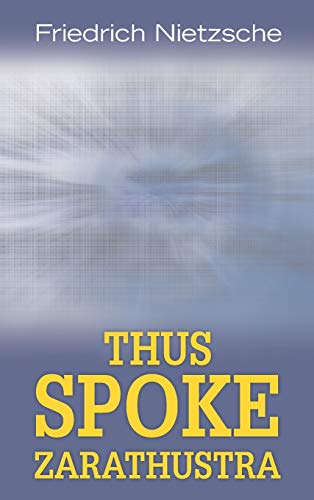
Pity is a pill too bitter for even a God to swallow, so it lodges in his throat and chokes him to death. Here the etiology of God's demise is due to the inherent pathology of pity. The old pope tells Zarathustra that "one day he choked on his all-too-great pity" (Z IV, 373/320), thereby answering in the affirmative Zarathustra's question concerning his strangulation. God suffered a twofold death due to pity.

We are told: "When Gods die, they always die several kinds of death" (Z IV, 373/320). The magnitude of Zarathustra's mastery is amplified, moreover, when we recall that pity is even a God-killer. Thus pity is called "the deepest abyss" (Z III, 269/ 195). His mastery of this feeling is no mean accomplishment, since pity teaches that life is suffering.

50 JOURNAL OF THE HISTORY OF PHILOSOPHY 31:1 JANUARY 1993 prospects of the eternal recurrence of the small human and the spirit of revenge. I shall generally follow the English translations mentioned above. All references to Nietzsche's German will be to KGW. g57, to refer to sections in specific essays/chapters. I will employ Kaufmann's abbreviations, p. Roman numerals result from numbering the essays in Kaufmann's table of contents, pp. Walter Kaufmann, in The Portable Nietzsche. Kaufmann and Hollingdale, with Eeee Homo (New York: Vintage, 1968). Walter Kaufmann (New York: Vintage, 1966). Walter Kaufmann (New York: Vintage, 1974). Hollingdale (Cambridge: Cambridge University Press, 198a ). Hollingdale (Cambridge: Cambridge University Press, 1986). Walter Kaufmann, with The Case of Wagner (New York: Vintage, 1967). References to Nietzsche's other books will use the following acronyms and the Arabic numerals will refer to section numbers: BT = The Birth of Tragedy, trans. The second set of Arabic numerals refers to the corresponding page numbers of Also Sprach Zarathustra in Nietzsches Werke: Kritische Gesamtausgabe (KGW), edited by Giorgio Colli und Mazzino Montinari, 3~ vois. References to Nietzsche's Thus Spoke Zarathustra will be to the part and page numbers of Walter Kaufmann's translation in The Portable Nietzsche (New York: The Viking Press, 1972), to3439.

The final part of Friedrich Nietzsche's Thus Spoke Zarathustra shows that Zarathustra overcame this insidious passion and its attendant attitudes like he overcame his nausea at the i would like to thank the reviewers of this article for their insightful remarks, suggestions, and criticisms. 1 PITY (MZTZZXD) WAS Zarathustra's last sin (letzte Siinde). CARTWRIGHT Is not pity the cross on which he is nailed who loves man? But my pity is no crucifixion. The Last Temptation of Zarathustra DAVID E.

In lieu of an abstract, here is a brief excerpt of the content:


 0 kommentar(er)
0 kommentar(er)
